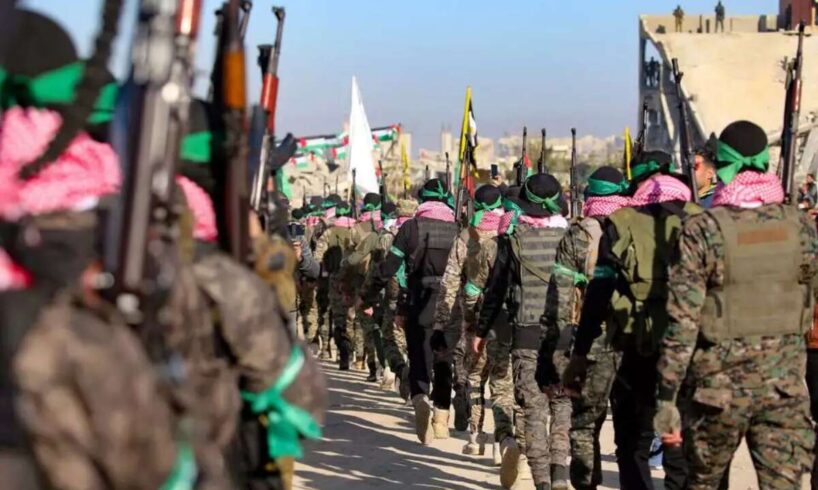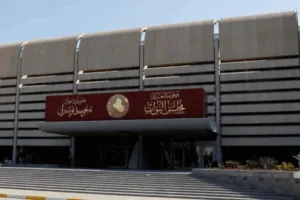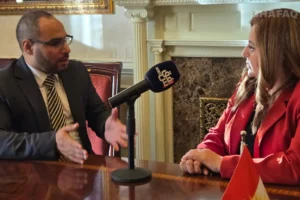
American and Arab diplomatic sources tell Israel Hayom that while Hamas has not yet provided an official response on a hostage and ceasefire deal, there have been positive signals regarding the IDF withdrawal map after it was clarified to them that it is the final version of said map. According to these sources, most disagreements over the prisoners to be released in exchange for the hostages have also been resolved, as have the issues related to humanitarian aid.
Hamas has reiterated its demand for massive aid shipments, 600 trucks a day, under its control. It has also insisted on halting aid distribution through the GHF centers operating under IDF supervision. Diplomats say that an agreement on this issue is nearly complete, but internal disagreements within Hamas’ broader leadership are causing the delay. They expressed cautious optimism that a deal could be signed within days.
Reports of progress in the Doha negotiations reveal the internal power struggle within Hamas over the proposed deal. Interestingly, the military wing in Gaza supports reaching a swift agreement, in contrast to some members of the political leadership who are pushing a more hardline, inflexible stance. According to a senior Palestinian source familiar with the situation, the military leadership remaining in the Strip, headed by Izz al-Din al-Haddad, has sent angry messages to Doha demanding faster progress due to the organization’s dire condition in the Gaza Strip.
Hamas terrorists in the Gaza Strip. Photo: AFP
The Palestinian source harshly criticized the rigid political leadership, naming Zaher Jabarin and Nizar Awadallah as the main figures. “They’re prepared to fight to the last drop of Gaza’s children’s blood while sitting in villas in Qatar and Turkey. They fail to understand that this round is over. They’ve brought disaster upon Gaza and are clinging to the last remnants of their military power just to claim they weren’t defeated.”
It is no coincidence that both Jabarin and Awadallah are protégés of Iran. Last week, it was reported that Iran is pressuring Hamas to take a tougher stance in the Doha ceasefire negotiations, and that this pressure prevented a deal from being signed during Prime Minister Benjamin Netanyahu’s visit to Washington.
According to Arab diplomats, Iran’s influence is being exerted through dozens of frantic phone calls between Tehran – mainly by senior Islamic Revolutionary Guard Corps officials, including Esmail Qaani – and Hamas leaders, particularly Jabarin and Awadallah, who manage the relationship with Iran. For post-war Iran, minimizing damage and denying Israel any political gains are critical. Hamas and the war in Gaza are seen as the last obstacles before Saudi Arabia and other Muslim countries normalize relations with Israel through the Abraham Accords, and before Israel reaches new security agreements in Syria and Lebanon. These are strategic goals aimed both at keeping Israel in a perpetual state of conflict and at enabling Iran-backed organizations to rebuild their strength.
Back in Gaza, there is a direct line between media reports of famine and chaos in the Strip and the negotiating rooms in Doha. In a last-ditch effort to apply international pressure on Israel, Hamas is conducting a broad campaign that includes exaggerated and biased reports of famine. It has shut down several food distribution points operated by international organizations in areas it controls and is systematically targeting those trying to bring in supplies from GHF centers under Israeli supervision, including shooting incidents and arrests of food seekers.
Palestinian civilians in Gaza arrive to receive aid. Photo: Reuters
While hunger does exist in Gaza, its scale is far less than reported. Nonetheless, these reports influence global media and, through it, American public opinion – by far the most important factor – which in turn increases pressure on Israel to show more flexibility in the negotiations. Despite this, US officials continue to blame Hamas for the stalled talks.
“There’s not always food left to hand out”
Saud, a Gaza resident in his 50s and father of three daughters, told Israel Hayom that Hamas had shut down two food distribution points he used to visit. “The few that remain are far away and overcrowded. Often, I don’t get there in time before they close, and sometimes there’s no food left.”
He described growing despair and chaos in the streets, with looting and violence. “Hamas members are mainly focused on stopping people from reaching the humanitarian aid centers. There have been several shooting incidents on roads leading to those places, carried out by Izz ad-Din al-Qassam fighters. My message to the world is this: the war must end by any means necessary. Hamas must be forced to leave, and Israel must stop the bombings and allow aid in. That’s it, we’re finished.”





